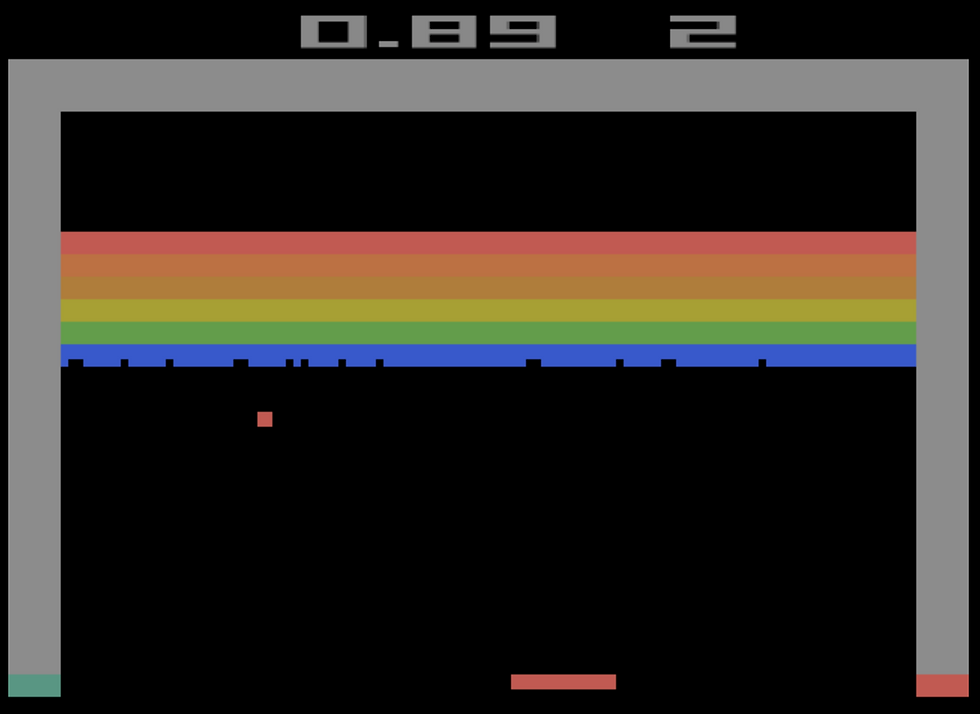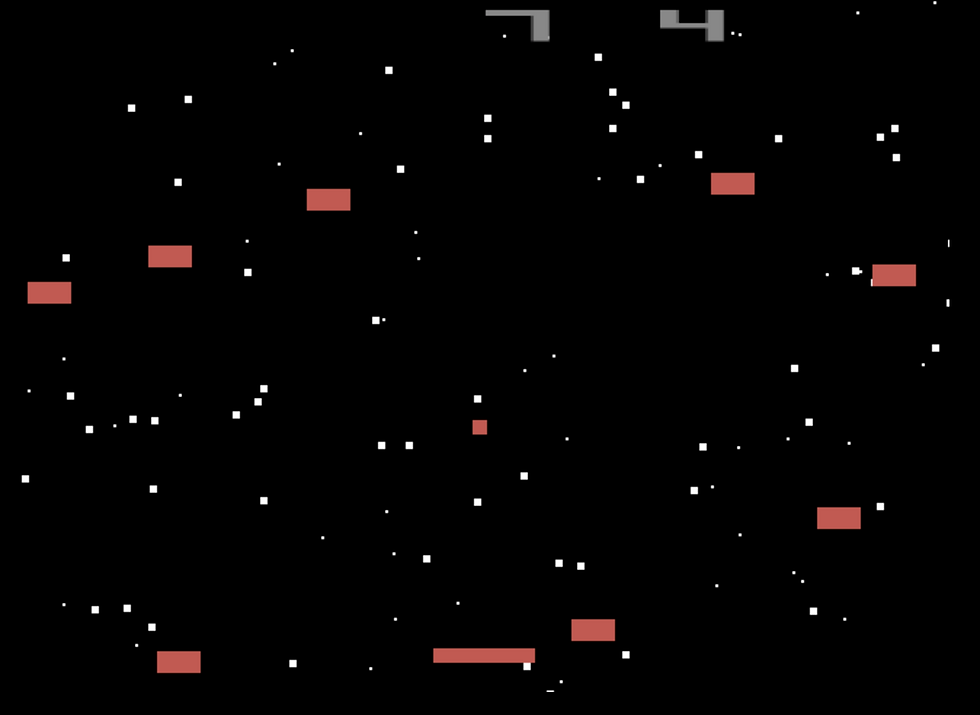Breaksout: Defining Mod Types
- plbevington
- Nov 10, 2019
- 2 min read
Breaksout isn’t really a game. It is a collection of 36 mods, all oriented around the original arcade game by Atari. As I started going through the different variants, I began to wonder what the purpose of these mods was. What does an arcade game have to do with Charles Dickens? Why would I want to waste my time waiting for the ball to come infinitely closer to my paddle in Zeno's Breakout? While I cannot speak for Pippin Barr as to the intended significance of any individual mod, the whole collection itself is a study in the different ways that mods change the form of a game. I decided to break these different ways down into 3 categories:

1. “Breakout, with a twist”- Mods that keep the same underlying form, but introduce new mechanics. In mods like Eke Out and Break In, the objective of the game is still the same, and while the means to achieve this goal may have changed, you still get the feeling that you are playing Breakout. A good majority of the mods fall into this category, sporting small changes in gameplay or UI that change the feeling of the game, but still play more or less like the original. From a computer science perspective, these mods probably have nearly identical code to the original, with one or two altered or added functions. These are mods that present a different “version” of Breakout.

2. “Breaking Out”- Mods that introduce a new form and drastically change the game mechanics. In mods like Spaceout and Recursive Breakout, the Pippin introduces mechanics that create a new game entirely. While the paddle and ball are still in view, these “new” games no longer feature the same objectives as the Breakout, and instead seem to be references to the original rather than modified copies. In contrast to the first category, these mods would probably share a similar codebase to the original, but would largely be made of different functions. These are mods that started as Breakout, and then became something else.

3. “Broken”- Mods that exist outside of the form of Breakout entirely. In mods like Social Breakout and Bleak House, the game completely exits the scope of the original. There is no more paddle, no more ball. No attempt is made to reference the original form or mechanics, and the only reason that they are related to Breakout is that they are part of a list of mods. In contrast to the first two, these mods probably share very little code, if any at all, with the original.
I decided to create these categories from a technical standpoint, but there are definitely other ways to approach this task. I’d be interested in knowing how others would add to or change these categories.



I'm very intrigued by how you state that Breaksout isn't really a game, but rather a collection of mods. I'm not sure if I entirely agree with that distinction, or if there's an effective defining formulations by which you can make the two mutually exclusive. Your division of mods through evaluating the deviations/similarities in their codes from the original source is definitely a persuasive undertaking. But throughout your analysis you refer to individual mods in Breaksout as games, which leads me to some questions: does Breaksout lose its status as a game because is it a collection of "mods"? Are mods not part of the broader definition of games? if Why do individual mods in Breaksout retain their identity as…
I enjoyed this post because I have never thought about mods from the standpoint of how they vary in code. The descriptions of your categories were specific and clear and I wonder what you think about how each "type" of mod contributes to the game. I would argue that most of the time, mods are able to encourage discussions of games that would not be as apparent by looking only at the original game. Especially the "breaking out" type that you mention is a good example of the types of mods that encourage thinking about games from a new perspective since they are similar enough to the game that they are still recognizable as being a version of the original,…